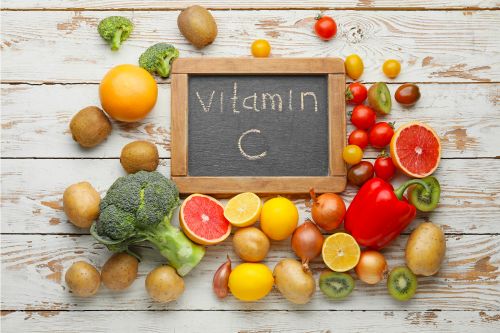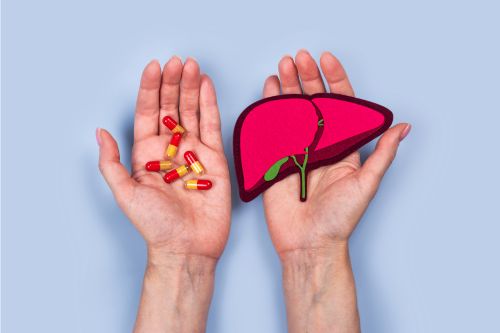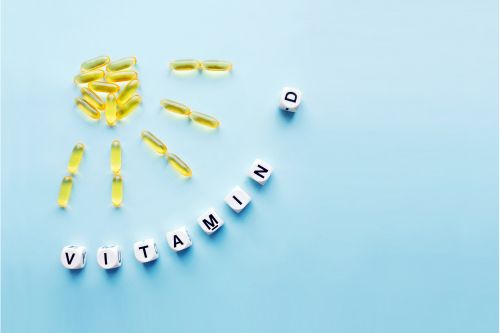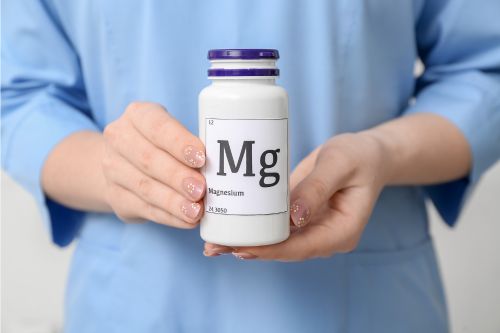4 Min Read
Complete B Vitamin Guide For Canadians

By definition, vitamins are organic compounds that are essential for normal physiological functioning. They are not synthesized by the body and must be ingested through the diet. Our bodies heavily rely on the diet to meet vitamin requirements, making it so important to eat a well-balanced diet. There are 4 fat-soluble vitamins (Vitamins A, D, E, K) and 9 water-soluble vitamins (C, B). In this week’s post, I will focus on the different B vitamins our body needs.
The B vitamins are a class of water-soluble nutrients that play an important role maintaining bodily functions. The shift from the Mediterranean diet which was high in B vitamins (fruits/vegetables, legumes, complex carbohydrates, olive oil, red wine, fish and meat to the “typical western diet” (high consumption of processed meat, red meat, butter, high-fat dairy products, eggs, refined grains and sugars) is associated with reduced intake of B vitamins.
There are 8 individual members of the Vitamin B family, often referred to as B-complex. Each B vitamin is unique in their function. The body does not store B vitamins, as they are water-soluble and excreted in urine. The need for B vitamins increases during times of stress, smoking, alcohol and drug use.
What Do B Vitamins Do?
- Energy production
- DNA & RNA synthesis and repair
- Maintaining a healthy nervous system
- Carbohydrate, protein and fat metabolism
- Brain function (Synthesis of neurochemicals)
- Synthesis of amino acids and fatty acids
The B complex vitamins include Thiamin (B1), Riboflavin (B2), Niacin (B3), Pantothenic acid (B5), Pyridoxine (B6), Biotin (B7), Folate (B9) and Cobalamin (B12). Below is a chart to help you understand the difference between all the B vitamins and which foods you should be eating to get them! Keep in mind that everyone’s dietary needs are different base don factors like lifestyle, diet and medications. For more detailed information on types of foods that contain the B vitamins take a look at THIS.
Now, I know some of you must be wondering if there is an easier way to get all those B vitamins or simply just looking to find an extra source! As mentioned earlier, B vitamins are super important as they are responsible for things like converting food into energy for the day, managing stress levels, preventing migraines and supporting healthy skin. Although whole food sources are the best, a B complex vitamin is a great alternative and certainly fills in the gap if you feel like you are not meeting your daily requirements through just diet. A B complex vitamin contains all 8 of the B's in the correct dosages and forms.
Here is a breakdown of all the different types of B Vitamins and what they do for the body:
B Vitamins
| Is Generally Knows As | Dietary Sources | Main Role In The Body |
| Thiamin(e) (B1) |
|
|
| Riboflavin (B2) |
|
|
| Niacin (B3) |
|
|
| Panthotheic Acid (B5) |
|
|
|
Pyridoxal, Pyridoxamine, Pyridoxine (B6) |
|
|
| Biotin (B7) |
|
|
| Folic acid/Folate (B9) |
|
|
| Cobalamins (B12) |
|
|
When would you supplement with a B Complex?
- When you are not ingesting enough B vitamins through your diet (Vegetarian or vegan)
- If you are ingesting substances that can deplete your body’s B Vitamins (Alcohol, birth control and other pharmaceutical medications)
- If you have an illness that can benefit from high dose B vitamins (anxiety, depression, migraines, stress)
I hope that after reading this post you are more inclined to have a diet that is well balanced. Eating the rainbow can ensure you are getting all the vitamins and minerals that the body needs. Incorporate some of the foods listed above to get your daily requirements for the B vitamins. If you are unable to incorporate them into your diet, take a good quality B complex Vitamin! Talk to your Naturopath if you decide taking a B complex is best for you!



